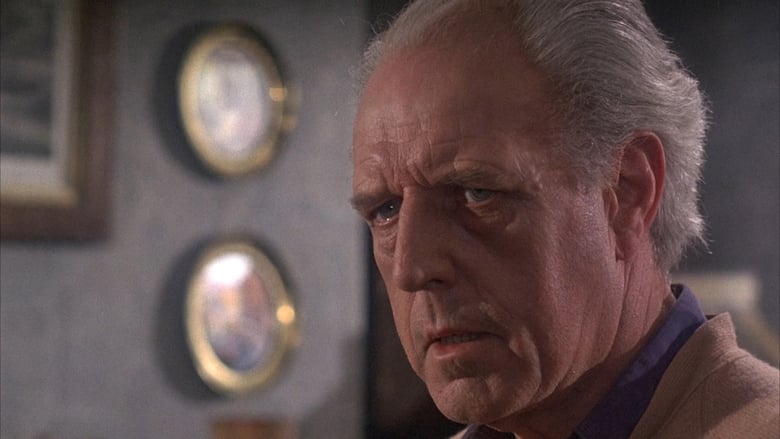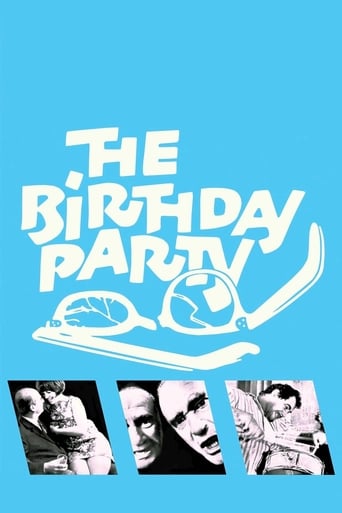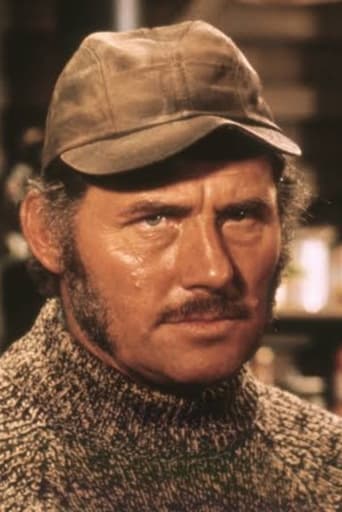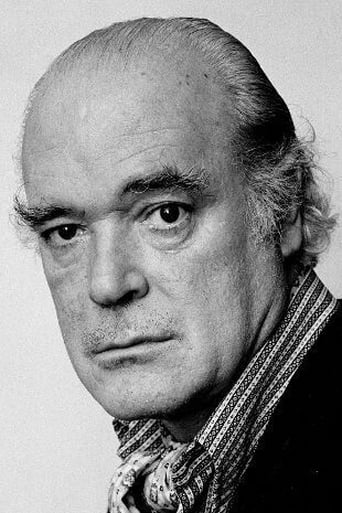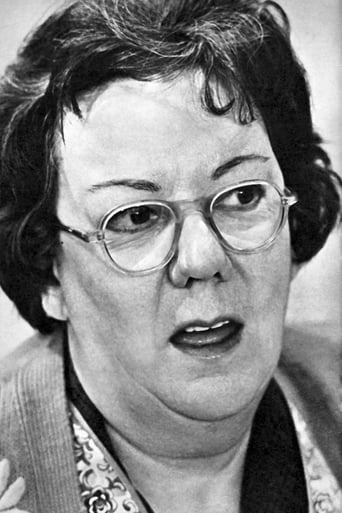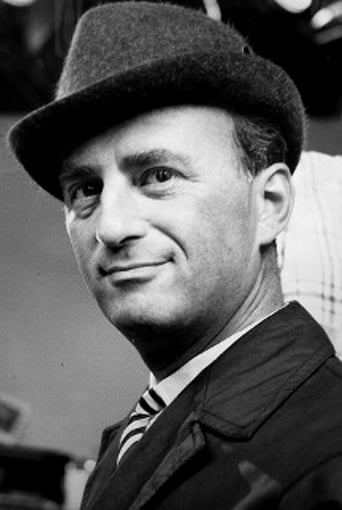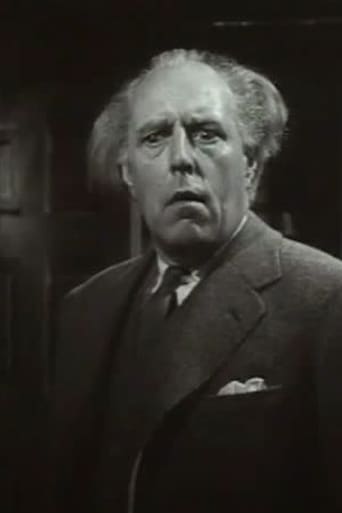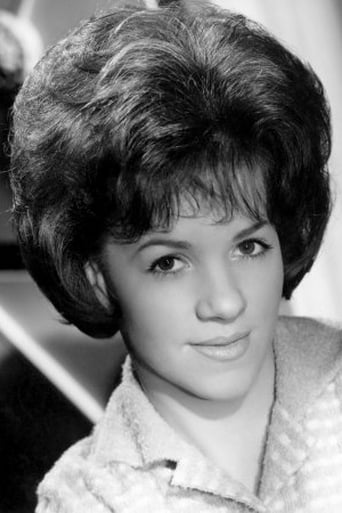Based on Harold Pinter's enigmatic play about a boarder in a British seaside dwelling who is visited by two strangers. They torment him verbally, ask him idiotic unanswerable questions, force him to sit down and stand up, and give him a "party". Then, eventually, they take him away, a tongue-tied idiot. The trivial becomes the terrible, and with it a certain wonder, a certain pity.
Reviews
Touches You
Great Film overall
The performances transcend the film's tropes, grounding it in characters that feel more complete than this subgenre often produces.
It's the kind of movie you'll want to see a second time with someone who hasn't seen it yet, to remember what it was like to watch it for the first time.
I thought the first ten minutes or so were great as the film has a really nice gritty, dark, grimy look to it. The storyline and pace started off OK and I was interested to see how it would develop. However, after about twenty minutes or so, the non sequiturs and random unexplainable dialogue (that seemed to imply there was something more to everything that was being said but never actually went anywhere) started to become really boring.Once those two fellas entered the scene it started to drag even more. Just a bunch of rambling nonsense. I couldn't bear it any longer and flicked through the last half hour.
Having seen many of Pinter's efforts on screen (The Servant, The Pumpkin Eater, Accident, The Last Tycoon, Sleuth etc) over many years, it was a great pleasure to finally see this early work which entertains and tantalizes in equal measures. From a Pinter-written play first produced in 1958, one of my favorite directors, William Friedkin, briskly directed a handful of brilliant actors in a story which has puzzled viewers and critics for over forty years.Recognizing that every viewer's experience of reality is different, let me describe what I saw and suggest a possible theme: A typical, sea-side boarding house owned by a less-than-middle class, middle-aged couple (Dandy Nichols, Moultrie Kelsall) eking out their daily drudge; a lone, youngish boarder and apparent musician (Robert Shaw) who looks and acts like a rude, lazy bum; and a mysterious pair of men (Patrick Magee, Sydney Tafler) who arrive at the abode to visit the young border and celebrate his birthday.The action - talk-fest is a better word - takes place in the front dining-sitting room over the course of the day, the evening and the next morning. Initially, Stanley (Robert Shaw) is verbally battered and intimidated by Nat (Sydney Tafler) and Shamus (Patrick Magee) with conversation which oscillates from the banal to the insidious; at one point, Stanley even punches Nat. Meanwhile, Meg (Dandy Nichols) goes out food shopping; her husband, Pete (Kelsall) is out at work as beach deck-chair supervisor. Shamus, significantly, has the unsettling habit of tearing a page of newspaper into precisely ordered strips; and then arranging them as a 'page' again. Over and over again....As evening arrives, there is a birthday 'party' of sorts which gradually degenerates into a drunken altercation between the three men, leaving Stanley mentally bowed and beaten - but not physically so. The party includes the infantile game of Blind Man's Bluff, a long toast to Stanley's birthday, binge drinking, and ends with Stanley smashing bottles, glasses and finally screaming for help in the darkness. Fade to black.The next morning, with Meg and Pete out of the house, a fresh-looking Nat, looking every bit The Organization Man - including sleek, smart, black briefcase - discusses Stanley's condition with Shamus while he, once again, proceeds to tear newspaper into orderly shreds. It is during that exchange where we learn the nature of Stanley's problem and why they need to take him away. At which point, Stanley now enters as the New Man after his Birth Day: showered, shaved, and suited up appropriately - looking and acting like a condemned man. As the three prepare to depart, Pete arrives, concerned for Stanley, but is told by Nat to leave it to them to handle it all. As the front door closes, Pete calls out after them: "Stan - don't let them tell you what to do!"Pete goes back to his newspaper reading. Meg returns and, when assured by Pete that Stanley is fine, they simply continue with their new day - thus cementing their implicit acceptance of Stanley's fate. Fade to black.In my view (no pun intended), this play is a metaphor, showing how modern capitalism squeezes the young - including the artistic Stanleys of the world - into a sleazily-suited life of mindless, office sludge. Hence, it could be compared to, say, Patterns (1956) which is all about raw corporate ethics. Or, better still, The Man in the Gray Flannel Suit (1956) - a somewhat less strident critique of modern man's self-made commercial trap which ensnares most into pointless paper-pushing - and the self-destructive consequences thereof. Is there more than just a touch of Pinter in Stanley's dilemma which Pinter wrote when only 28? Perhaps.The acting, direction and cinematography are simply brilliant; as is the dialog, which must be followed closely to enjoy to the fullest. Sure, it's a claustrophobic setting for some viewers, being in one room for most of the time. All the better to concentrate on the characters, surely? Are we not, ourselves, always in one room much of the time, anyway?Highly recommended for all. Nine out of ten.
Harold Pinter adapted his own play for The Birthday Party, a bizarre and enigmatic film set in a seaside boardinghouse. Robert Shaw stars as Stanley Weber, an unemployed, failed pianist holes up in a dingy rented room only to have two strangers arrive who insidiously badger, pester, and eventually terrorize him to the point of speechlessness. With the play being written near the height of the Cold War movement in 1958, some critics have suggested Pinter is making a statement about living under a brutal Communist regime where every state action and thought is predicated on controlling and undermining the actions and thoughts of others. Meanwhile, the simple and deluded types, such as the owners of the boardinghouse, are lulled into a quasi-free existence in which they are obedient, easily influenced, or believe what they are told.The claustrophobic setting highlights the irrelevance of surroundings when one's thoughts are easily controlled or influenced. The symbolism of the game of blind man's bluff and the eyeglasses incident are not lost on the viewer considering this perception of Pinter's play. As in most of Pinter's plays, the dialog is a standout as well as the acting of the four leads. The play could just as easily be seen as an experience that confounds the viewer with its conundrums and its lack of empathy for the characters. It's reminiscent of Beckett's "Waiting For Godot" and Kafka's "The Trial", both of which are open to multiple interpretations requiring multiple viewings in order to gain additional perspectives. William Friedkin directed this, his second feature, because Pinter probably couldn't get anyone else to do it. It's definitely not a film for all tastes. *** of 4 stars.
As one of this world's more zealous Robert Shaw fans, I feel obliged to put this gem in every once in a while and follow Shaw's every move. I must say, this film amazes me; it confounds me every time. There's only one emotion that overwhelms my passion for Mr. Shaw's gift in front of the camera--irritation--and it's aimed right straight at the storyline. You will find yourself wondering what's going on and why, as the actors' performances blind you with their shabby, touching directness. Don't let the story creep and seep too far into your brain. The story will cloud your ability to appreciate what this film is full of--brilliant, golden performances. They all shine, especially Shaw as poor Stanley. I enjoy watching films that take me to England in the 60s. The surroundings are dreary and depressing and totally marvelous. This film is well worth seeing; but, once again, I warn you--ignore the story; adore the actors! Oh, and an extra bonus (for what it is worth)-- After watching this film, you'll never look at a newspaper the same way again, I guarantee you. Enjoy!
Top Streaming Movies











